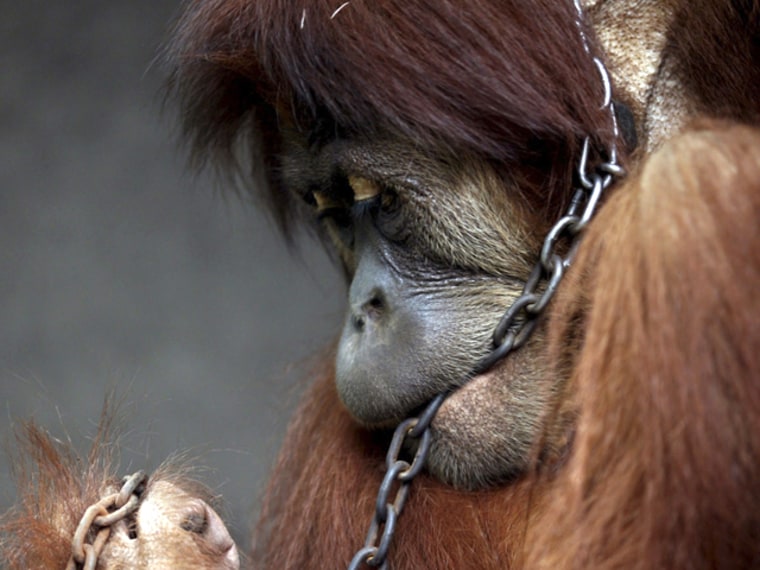Even after three decades of conservation efforts, the illegal trade of wild orangutans as pets is getting worse, with hundreds taken as pets since the 1970s, the international group that monitors wildlife smuggling reported Thursday.
"An estimated 2,000 orangutans have been confiscated or turned in by private owners in Indonesia in the last three decades but no more than a handful of people have ever been successfully prosecuted," the monitoring network TRAFFIC reported.
The network urged Indonesia to enforce national and international laws meant to protect the rapidly dwindling species.
"Confiscating these animals without prosecuting the owners is futile,” Chris Shepherd, director of TRAFFIC Southeast Asia, said in a statement. "There is no deterrent for those committing these crimes, if they go unpunished. Indonesia has adequate laws, but without serious penalties, this illegal trade will continue, and these species will continue to spiral towards extinction."
Shepherd noted that the animals are generally caught when they are young and often handed over to rehabilitation centers when they are too old or big to be held as pets.
More than 140 orangutans were brought to one such center on Sumatra island between 2002-2008 — numbers that mirrored those in the '70s, when the trade went largely unchecked, the British-based group said.
There are an estimated 50,000 to 60,000 orangutans left in the wild, 90 percent of them on the island of Borneo, which is divided largely between Indonesia and Malaysia, and the rest on nearby Sumatra.
The biggest threat to the species has been deforestation of rain forests to make way for lucrative palm oil plantations and for timber.
TRAFFIC also based its findings on orangutans turned in to shelters, as well as visits to wildlife markets and interviews with owners of pet orangutans.
